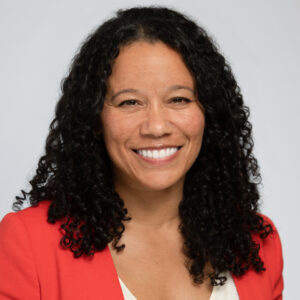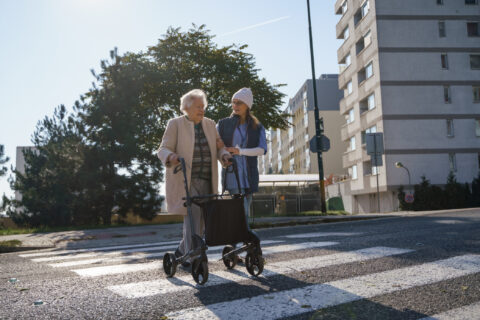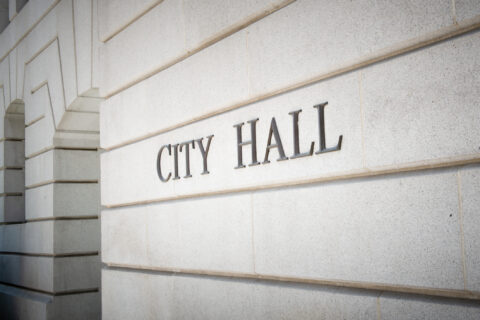When the City of Norwalk, Connecticut, completed a reorganization approximately five years ago, they established the Business Development and Tourism Department. This opened a new pathway for entrepreneurs and business owners to gain financial support, as beforehand, the only financial resources available to entrepreneurs were through existing state-sponsored grant and loan programs.
The previous lack of local support presented a challenge for business owners that needed a small amount of startup capital but were not ready to accept or apply for state incentives or loans. Many business owners were not able to access funding through traditional lenders and as a result, were not able to grow or progress their businesses in the way they had hoped. To provide suitable financing, specifically for women or minority-owned businesses and entrepreneurs, Norwalk determined they needed innovative, affordable options to add to their capital toolkit. Real, sustainable options that could help business owners build credit while not overwhelming the Business Development and Tourism team with the creation and management of a full lending program.
“We’re not a bank,” points out Chief Economic and Community Development Officer Jessica Vonashek, whose team has wrestled with this concept for a few years. “Government has numerous strengths, but it is not the most adept when it comes to things like lending.” Norwalk determined it was ultimately best to partner with a professional: an organization with the technical skills and resources to step in where the City could not.
How Norwalk is Doing It
In November 2021, the team decided to join NLC’s City Inclusive Entrepreneurship Program to build a microlending platform for underfinanced entrepreneurs. By working with NLC and crowdfunding partner Kiva, they envisioned a solution that would complement Norwalk’s existing offerings while plugging a critical financing gap.
What is Kiva?
Kiva works by offering crowd-backed microloans to entrepreneurs at 0% interest, with no fees and no required credit checks. A microlending marketplace, Kiva matches entrepreneurs with roughly 2 million lenders from all over the world who can donate as little as $25. By setting up a Kiva Hub, city governments and partners can facilitate affordable, risk-tolerant microloans to entrepreneurs who have been underserved by traditional lenders. To learn how Norwalk’s entrepreneurs are raising on Kiva, visit norwalkforbusiness.org/kiva.
Norwalk successfully launched the state’s first Kiva hub in August 2022 and opened the doors to its new Business Development Center in November. To date, Norwalk’s Kiva hub has funded six businesses, all women- or minority-owned. Additionally, they have five applicants in the fundraising stage and 11 more in the pipeline. Loan turnaround takes about 30 days and amounts range from $1,500 to $15,000, based on the needs of the entrepreneur. One Norwalk resident is opening a senior assistance center, and another has already started her own business crafting boutique ice cream. Kiva loan amounts may seem modest, but to business owners with little to no cash flow or existing financial support, it is a significant boost.
“I wish I could share some of the messages I receive,” reflects Pedro Mata. Mata has been an entrepreneur for over 30 years and a Kiva Lender for about six before joining the team as the City of Norwalk’s Capital Access Manager. “It can be emotional to receive texts of gratitude from people who can’t believe what the City of Norwalk and Kiva has helped them do.”
As he consults with applicants, Mata talks to business owners about the ideas they have and how they can grow. In addition to the microloans, the Business Development Center offers skills training and wraparound services like technical support for English language learners or business plan writing assistance. Other partners, like the Women’s Business Development Council, the Hispanic Chamber of Commerce, and SCORE, have banded together to offer supplementary services that were missing in the past. “If, for some reason, we’re not the right resource,” says Sabrina Godeski, Director of Business Development & Tourism, “we can refer businesses to one of our partners who can help in a better capacity. We’re fitting into this naturally occurring ecosystem, which is now more prominent and more connected than it was before.”
In total, Norwalk’s Business Development Center currently offers:
- Microlending through Kiva
- The Storefront Improvement Grant Program, which has been in place since 2019
- The Norwalk Innovations Program, launched in partnership with the Norwalk Chamber of Commerce in 2022
- Mitigation funds for businesses impacted by COVID-19
- The Small Business and Main Streets Program, which helps neighborhood improvement and small businesses by extension
The team is mindful that momentum will be important to maintain, especially when the influx of local financial support like ARPA concludes. For Vonashek, Godeski and Mata, the new Kiva Bub and Business Development Center will keep Norwalk on track to support entrepreneurs and small businesses for the foreseeable future. “It’s really just a matter of us getting the word out now,” Godeski says.
Lessons Learned
Early air cover is critical. For Norwalk, almost every step of the hub’s launch required approval from the Common Council. As something the City had never encountered before, it took several iterations before the final approval. Instead of skepticism and doubt, each round was met with encouragement from a well-informed, actively involved leadership team.
Have options once people come in the door. By housing the Kiva hub within the Business Development Center, Norwalk entrepreneurs can access a variety of resources—between the Kiva loan, a storefront improvement grant, or an innovation grant—they may not have known they qualified for.
Crowdfund champions as well as dollars. Fitting the Kiva hub within the framework of a larger ecosystem and garnering support from city leadership, partner organizations and entrepreneurs helped Norwalk achieve success.
This blog is part of a series highlighting NLC’s City Inclusive Entrepreneurship (CIE) Network. Cities in the network have committed to implementing new policies, programs and practices that increase economic opportunity for residents through small business ownership and entrepreneurship. In November 2021, Mayor Harry Rilling of Norwalk, CT, committed to building a platform for microlending to serve entrepreneurs without access to traditional finance.








